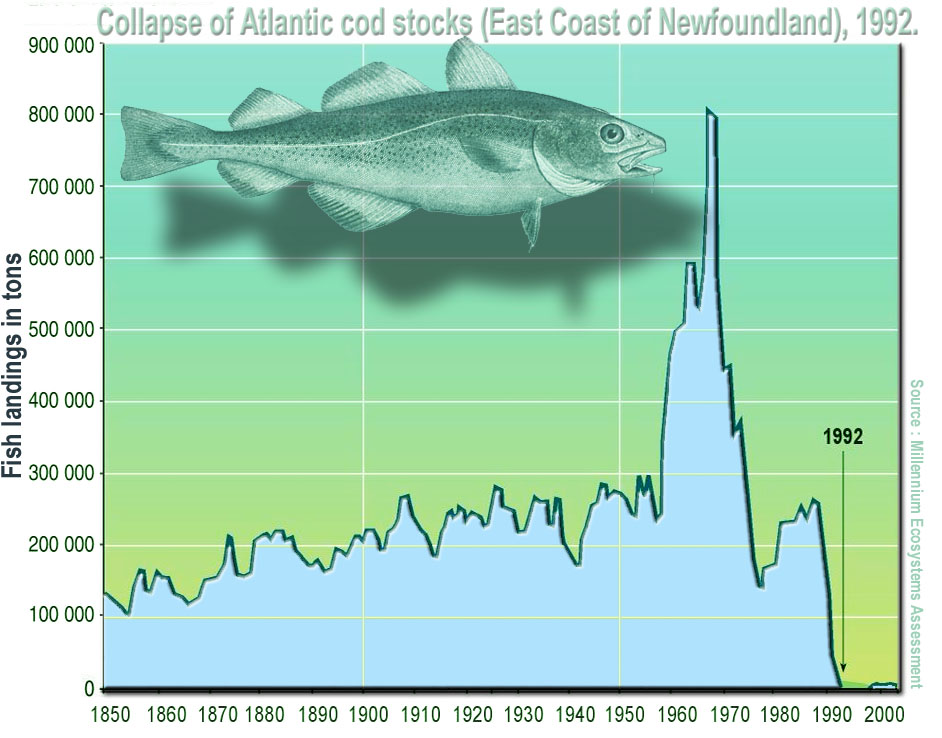
Overexploitation
Overexploitation, also called overharvesting, refers to harvesting a renewable resource to the point of diminishing returns.[2] Continued overexploitation can lead to the destruction of the resource, as it will be unable to replenish. The term applies to natural resources such as water aquifers, grazing pastures and forests, wild medicinal plants, fish stocks and other wildlife.
In ecology, overexploitation describes one of the five main activities threatening global biodiversity.[3] Ecologists use the term to describe populations that are harvested at an unsustainable rate, given their natural rates of mortality and capacities for reproduction. This can result in extinction at the population level and even extinction of whole species. In conservation biology, the term is usually used in the context of human economic activity that involves the taking of biological resources, or organisms, in larger numbers than their populations can withstand.[4] The term is also used and defined somewhat differently in fisheries, hydrology and natural resource management.
Overexploitation can lead to resource destruction, including extinctions. However, it is also possible for overexploitation to be sustainable, as discussed below in the section on fisheries. In the context of fishing, the term overfishing can be used instead of overexploitation, as can overgrazing in stock management, overlogging in forest management, overdrafting in aquifer management, and endangered species in species monitoring. Overexploitation is not an activity limited to humans. Introduced predators and herbivores, for example, can overexploit native flora and fauna.